BYD Seal VS VW Caddy – Specs, Efficiency & Price Comparison
Which model is the better choice – the BYD Seal or the VW Caddy? We compare performance (530 HP vs 150 HP), boot capacity (400 L vs ), efficiency (16.60 kWh vs 0.50 L), and of course, the price (38600 £ vs 27800 £).
Find out now which car fits your needs better!
The BYD Seal (Sedan) is powered by a Electric engine and comes with a Automatic transmission. In comparison, the VW Caddy (High Roof Estate) features a Petrol, Diesel or Plugin Hybrid engine and a Manuel or Automatic gearbox.
When it comes to boot capacity, the BYD Seal offers 400 L, while the VW Caddy provides – depending on what matters most to you. If you’re looking for more power, you’ll need to decide whether the 530 HP of the BYD Seal or the 150 HP of the VW Caddy suits your needs better.
There are also differences in efficiency: 16.60 kWh vs 0.50 L. In terms of price, the BYD Seal starts at 38600 £, while the VW Caddy is available from 27800 £.
Compare all the key specs now and find out which model fits your lifestyle best!
BYD Seal
The BYD Seal represents a sleek fusion of innovative technology and stylish design, setting it apart in the competitive electric vehicle market. With its aerodynamic silhouette and premium interior finishes, the car offers a driving experience that is both comfortable and exhilarating. Enthusiasts are particularly impressed by the seamless integration of advanced features that prioritise safety and convenience.
details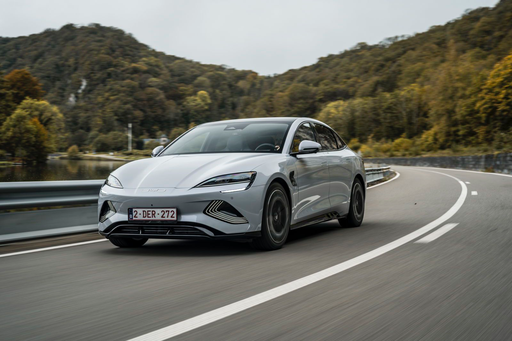 @ press.bydauto.be
@ press.bydauto.be
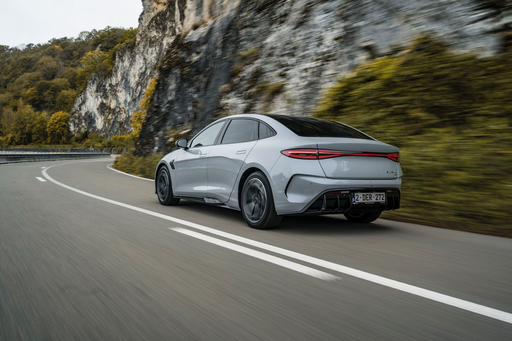 @ press.bydauto.be
@ press.bydauto.be
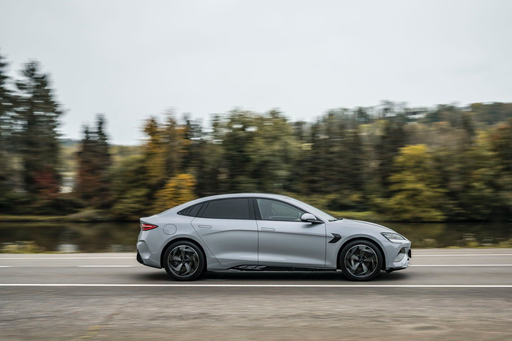 @ press.bydauto.be
@ press.bydauto.be
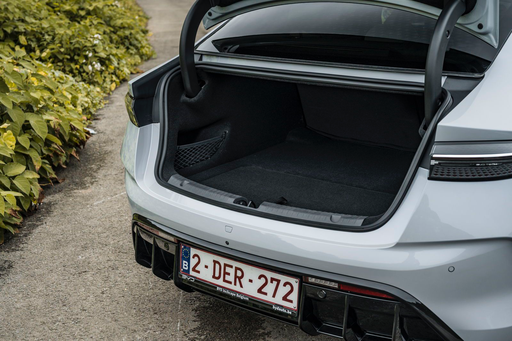 @ press.bydauto.be
@ press.bydauto.be
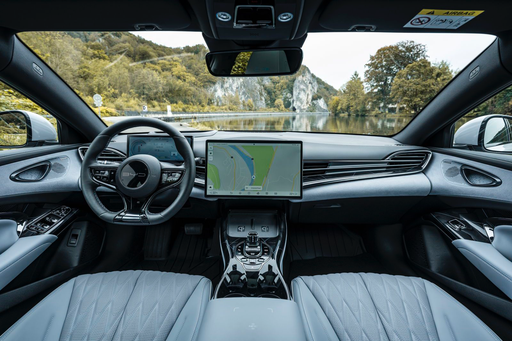 @ press.bydauto.be
@ press.bydauto.be
VW Caddy
The VW Nutzfahrzeuge Caddy Hochdach-Kombi is a versatile choice for those seeking extra space and practicality in their everyday vehicle. With its functional high roof and adaptable interior, it easily accommodates both passengers and cargo. The Caddy also stands out with its modern design and features aimed at providing comfort and convenience on the road.
details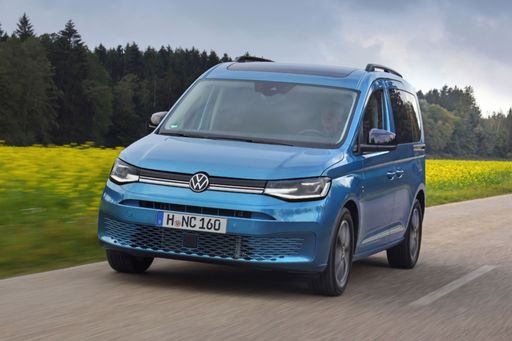 @ vwpress
@ vwpress
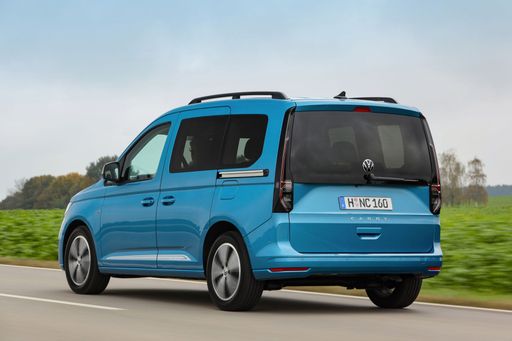 @ vwpress
@ vwpress
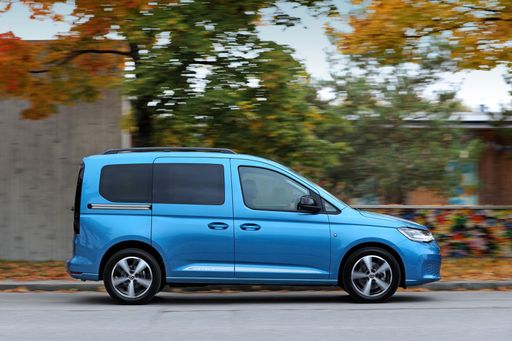 @ vwpress
@ vwpress
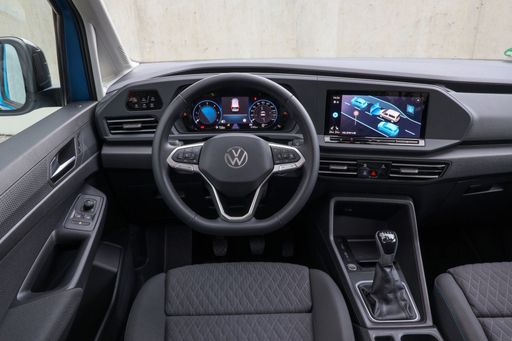 @ vwpress
@ vwpress

|

|
|
|
|
Costs and Consumption |
|
|---|---|
|
Price
38600 - 43700 £
|
Price
27800 - 45900 £
|
|
Consumption L/100km
-
|
Consumption L/100km
0.5 - 6.9 L
|
|
Consumption kWh/100km
16.6 - 18.2 kWh
|
Consumption kWh/100km
-
|
|
Electric Range
520 - 570 km
|
Electric Range
116 - 121 km
|
|
Battery Capacity
-
|
Battery Capacity
19.70 kWh
|
|
co2
0 g/km
|
co2
10 - 165 g/km
|
|
Fuel tank capacity
-
|
Fuel tank capacity
50 L
|
Dimensions and Body |
|
|---|---|
|
Body Type
Sedan
|
Body Type
High Roof Estate
|
|
Seats
5
|
Seats
5 - 7
|
|
Doors
4
|
Doors
5
|
|
Curb weight
2055 - 2185 kg
|
Curb weight
1575 - 1998 kg
|
|
Trunk capacity
400 L
|
Trunk capacity
-
|
|
Length
4800 mm
|
Length
4500 - 4853 mm
|
|
Width
1875 mm
|
Width
1855 mm
|
|
Height
1460 mm
|
Height
1819 - 1860 mm
|
|
Payload
446 kg
|
Payload
501 - 710 kg
|
Engine and Performance |
|
|---|---|
|
Engine Type
Electric
|
Engine Type
Petrol, Diesel, Plugin Hybrid
|
|
Transmission
Automatic
|
Transmission
Manuel, Automatic
|
|
Transmission Detail
Reduction Gearbox
|
Transmission Detail
Manual Gearbox, Dual-Clutch Automatic
|
|
Drive Type
Rear-Wheel Drive, All-Wheel Drive
|
Drive Type
Front-Wheel Drive, All-Wheel Drive
|
|
Power HP
313 - 530 HP
|
Power HP
102 - 150 HP
|
|
Acceleration 0-100km/h
3.8 - 5.9 s
|
Acceleration 0-100km/h
11.4 - 14 s
|
|
Max Speed
180 km/h
|
Max Speed
173 - 186 km/h
|
|
Torque
360 - 670 Nm
|
Torque
220 - 320 Nm
|
|
Number of Cylinders
-
|
Number of Cylinders
4
|
|
Power kW
230 - 390 kW
|
Power kW
75 - 110 kW
|
|
Engine capacity
-
|
Engine capacity
1498 - 1968 cm3
|
General |
|
|---|---|
|
Model Year
2023
|
Model Year
2024
|
|
CO2 Efficiency Class
A
|
CO2 Efficiency Class
E, F, B
|
|
Brand
BYD
|
Brand
VW
|
BYD Seal
The BYD Seal: An Electrifying Presence on the Road
Amidst the growing popularity of electric vehicles (EVs), the BYD Seal stands out as a compelling choice. With its sleek saloon design and a plethora of cutting-edge features, this model holds its own in the competitive market of eco-conscious automobiles.
Technical Specs that Speak Volumes
The BYD Seal comes in two key variants, each offering a distinct driving experience yet retaining a common emphasis on performance and efficiency. The power output ranges from a robust 313 PS to an exhilarating 530 PS, ensuring that whether you choose the rear-wheel drive or the all-wheel-drive option, you won't be short of thrills.
Performance enthusiasts will also appreciate the remarkable acceleration capabilities; the Seal can go from 0 to 100 km/h in as little as 3.8 seconds. Complementing its acceleration is its astounding maximum torque, reaching up to 670 Nm, making it adept at handling various driving conditions.
Efficiency Meets Innovation
BYD has engineered the Seal to optimise energy consumption without compromising on performance. The car boasts a commendable energy consumption range of 16.6 - 18.2 kWh/100km, reflecting its efficiency-focused design. Coupled with an impressive electric range of up to 570 km, the Seal is poised for longer journeys without frequent recharging interruptions.
Design and Comfort
The BYD Seal's aesthetic appeal is underscored by its sleek saloon body and precise dimensions: 4800 mm in length, 1875 mm in width, and standing at a height of 1460 mm. These dimensions create a dynamic yet spacious presence on the road, ensuring both an aerodynamic performance and a comfortable interior for up to five passengers.
Inside, the Seal is designed with driver and passenger comfort in mind, featuring a well-crafted interior and advanced technology to enhance the driving experience. The boot offers 400 litres of space, catering to practical needs without compromising on style.
Innovative Features for a Modern Drive
The Seal doesn’t just rely on its electric credentials to make an impact. BYD integrates a host of modern technologies and safety features, ensuring that the driving experience is both innovative and secure. The inclusion of a single-speed reduction gear contributes to a smooth driving experience, enabling efficient transitions in speed.
Safety is further assured with the Seal's high CO2 efficiency rating of class A, underlining its efficacy as a sustainable mode of transport that does not contribute to emissions. Given these progressive features, it's clear that the BYD Seal aligns with the evolving expectations of modern drivers looking for an eco-friendly yet high-performing vehicle.
Conclusion: Future-Ready Efficiency
With a competitive price range starting from €44,990, the BYD Seal represents excellent value for those seeking a blend of performance, efficiency, and modern technology. As sustainable transportation becomes a priority globally, the Seal positions itself as a pioneering force in the electric vehicle market, offering a future-ready driving solution that can meet the needs of today's discerning car buyers.
VW Caddy
A Versatile Classic Reimagined: The Volkswagen Caddy
The Volkswagen Caddy has long been celebrated as a versatile workhorse, adeptly bridging the gap between utility and comfort. With its roots tracing back to the 1980s, the Caddy has evolved considerably, transforming from a humble commercial vehicle to a sophisticated multi-purpose van. The latest model continues this tradition by offering innovative features and enhanced technical specifications, reaffirming its status as an indispensable vehicle for both professional and personal use.
Efficient Engines and Environmental Innovation
At the heart of the Volkswagen Caddy lies an array of engines designed to balance performance with efficiency. The latest generation offers a selection of TSI petrol and TDI diesel engines, each engineered to meet the strictest environmental standards. These Euro 6 compliant engines not only reduce emissions but also ensure optimal fuel efficiency, making the Caddy an economically viable choice for businesses and environmentally conscious drivers alike.
For those seeking an even greener option, Volkswagen offers a natural gas engine variant. This innovative powertrain reduces CO2 emissions significantly, yet delivers a driving experience that remains characteristically smooth and powerful. This commitment to alternative energy sources reflects Volkswagen's dedication to sustainability and forward-thinking automotive design.
Advanced Connectivity and Safety Features
The Volkswagen Caddy is not just about robust performance; it also shines in the realm of technology and safety. The modern dashboard is equipped with the Discover Media navigation system, integrating satellite navigation with real-time traffic updates. This intuitive infotainment system gets wirelessly connected to smartphones via Apple CarPlay and Android Auto, keeping drivers informed and entertained during every journey.
Safety is paramount in the latest Caddy, which comes standard with a suite of advanced driver assistance systems. Front Assist with City Emergency Braking ensures crucial safety in urban environments, while Adaptive Cruise Control with speed limiter provides comfort and control on the open road. Additionally, features like the Park Assist system make maneuvering in tight spaces a breeze, offering peace of mind and ease of use no matter the driving conditions.
Dynamic Design and Practicality
Blending aesthetics with functionality, the redesigned exterior of the Volkswagen Caddy is both modern and practical. It features a streamlined silhouette that not only improves aerodynamic efficiency but also enhances its visual appeal. From the distinctive front grille to the LED headlamps, every design element serves a purpose, resonating Volkswagen’s design philosophy of form following function.
Inside, the Caddy offers a remarkably spacious interior, adaptable to a variety of needs. Depending on the configuration, it accommodates up to seven passengers comfortably or can be transformed to offer substantial cargo space, catering to professionals who require versatility from their vehicles. The interior details are thoughtfully crafted, with high-quality materials that sustain durability and comfort over long-term use.
Conclusion: A Modern Mainstay
The Volkswagen Caddy, with its latest iteration, continues to embody versatility and innovation. Its efficient powertrains, cutting-edge connectivity features, and commitment to safety set new standards in the compact van segment. Whether utilized as a family vehicle or a business asset, the Caddy remains a formidable choice, carrying forward a legacy of reliability and ingenuity.
For drivers seeking a well-rounded vehicle that offers the best of both worlds—commercial reliability with personal comfort—the Volkswagen Caddy stands as an exemplary choice. It is not just a vehicle; it's a partner on wheels, designed for the multifaceted demands of modern life.
The prices and data displayed are estimates based on German list prices and may vary by country. This information is not legally binding.
